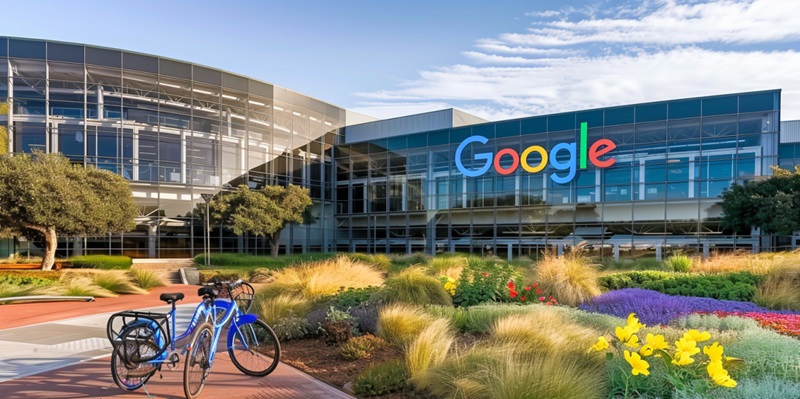The relentless march of technology continues to alter the landscape of our daily lives, and at the forefront of this transformation is Google’s sophisticated stride in artificial intelligence (AI). More than just a series of convenient features, AI has become a pervasive force in Google’s arsenal, vivifying its array of products and services. This integration is steering not only technological advancements but also invoking substantive changes across multiple sectors. From refining search engine algorithms to pioneering in healthcare, and catalyzing the autonomous vehicle industry, AI serves as the backbone of Google’s quest for innovation. As these technologies become increasingly integrated into everyday experiences, understanding the depths and breadths of Google’s AI ambitions reveals a picture of a future where technology’s nexus with life is both seamless and intuitive.
AI’s Role in Google Search and Personalization
In 2015, Google introduced RankBrain into their search algorithm fold, harnessing the predictive power of machine learning. RankBrain’s capacity to parse open-ended queries has been a game-changer in surfacing relevant search results. Bolstering this, Google unveiled BERT in 2019, expanding their repertoire in natural language understanding. BERT represents a significant leap forward, as it grasps the nuance of words in context, delivering search outcomes that lean closer to human reasoning. For users, this translates into finding what they’re looking for with unprecedented accuracy, drastically improving the search experience.
The tendrils of AI extend beyond search, wrapping around the personalized offerings across Google’s suite of services. User-centric enhancements in Google Photos, for example, leverage sophisticated image recognition algorithms, enabling intuitive searches within one’s photo library. Meanwhile, Google News utilizes AI to tailor news article recommendations, fitting snugly with a user’s interests and reading habits. This personalized approach has bumped up the relevance factor, redefining user satisfaction in the digital content consumption space.
The Google Assistant Experience
Diving deeper into personalization, the Google Assistant exemplifies Google’s prowess in AI. It employs advanced natural language processing and machine learning to comprehend user commands and offer tailored recommendations. The Assistant has transformed how we approach daily tasks, serving as a tireless personal aide that learns and evolves with each interaction. It’s not just about obeying commands; it’s about anticipating needs and providing contextual assistance that aligns with individual preferences. This evolution is reflective of Google’s vision, one where AI is the silent partner in enhancing life’s quality and efficiency.
AI in Healthcare: A Leap Toward the Future
Google’s foray into healthcare presents a pioneering vision of AI’s capabilities beyond everyday convenience. With initiatives like Google Health and subsidiary DeepMind, artificial intelligence is being applied to medical diagnostics, exemplified by their work on eye condition analysis through retinal scans. These AI-driven tools are consistently matching, and sometimes outpacing, traditional methods in accurately interpreting mammograms for breast cancer detection. This isn’t just technological showmanship; it signals a seismic shift toward a future where AI doesn’t replace medical professionals but enhances their ability to deliver precise and personalized care.
Revolutionizing Transportation with Autonomous Vehicles
Waymo, born from Google’s vision of autonomous driving, symbolizes AI’s transformative role in transportation. Fusing hardware, software, and AI into a cohesive unit, these self-driving vehicles navigate complex driving scenarios with a finesse that was unfathomable a few years ago. The potential benefits are manifold—reducing accidents, conserving energy, alleviating traffic congestion, and affording mobility to those unable to drive. While still in its infancy, this technology heralds an era of transportation that is safer, cleaner, and more inclusive.
Breaking Language Barriers with Google Translate
Language has long stood as a formidable barrier to global connectivity, but AI is breaching these walls through Google Translate. By leveraging neural machine translation, intricate deep-learning models translate whole sentences, considering the contextual idiosyncrasies of both the source and target languages. This nuance brings us closer to authentic, idiomatic translations, facilitating smoother conversations, and ensuring ideas pervade cultural divides. It’s a step toward a world where communication limitations are significantly diminished, empowering global understanding and cooperation.
AI in Smart Devices and Home Automation
Google Nest epitomizes how AI is redefining home automation for smart living. These devices learn user preferences autonomously, adjusting to deliver energy-efficient and convenient environments. Whether through intelligent thermostats that adapt to your schedule or security cameras fortified with recognition algorithms, Nest products imbue homes with an effortless intelligence. This blend of AI and everyday objects underscores a broader trend where technology recedes into the fabric of life, emerging only to offer assistance and enhance wellbeing.
Ethical Considerations in the Development of AI
The development of AI brings myriad ethical concerns to the forefront. Issues such as data privacy, algorithmic bias, and the digital divide necessitate careful consideration to ensure AI is used responsibly and equitably. Google is cognizant of these challenges and strives to address them within their AI principles, which emphasize strong safety practices and the creation of socially beneficial AI. As AI becomes more advanced and ingrained in society, it’s imperative for Google and the broader tech industry to remain vigilant custodians of technology’s ethical evolution, preserving human dignity and rights.

